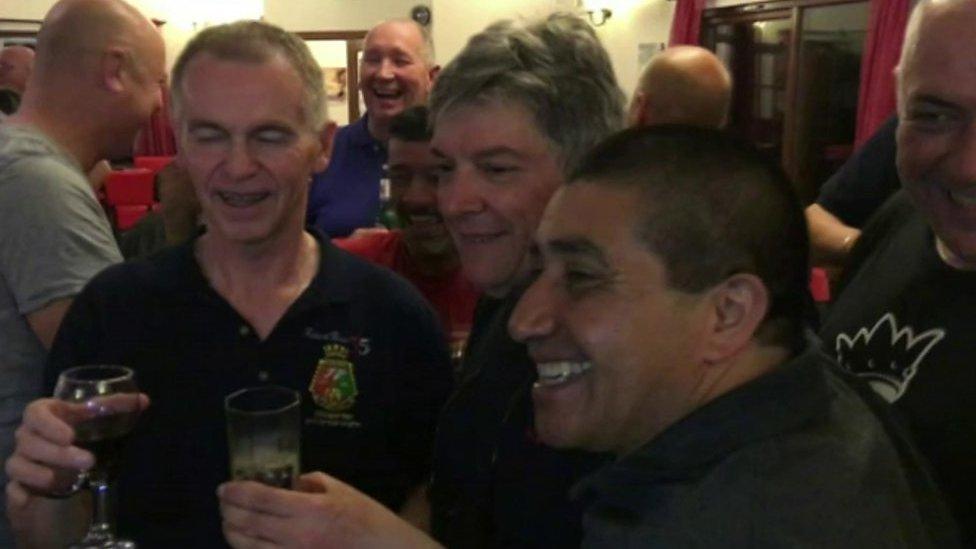Falklands veteran reflects on campaign 40 years on
- Published
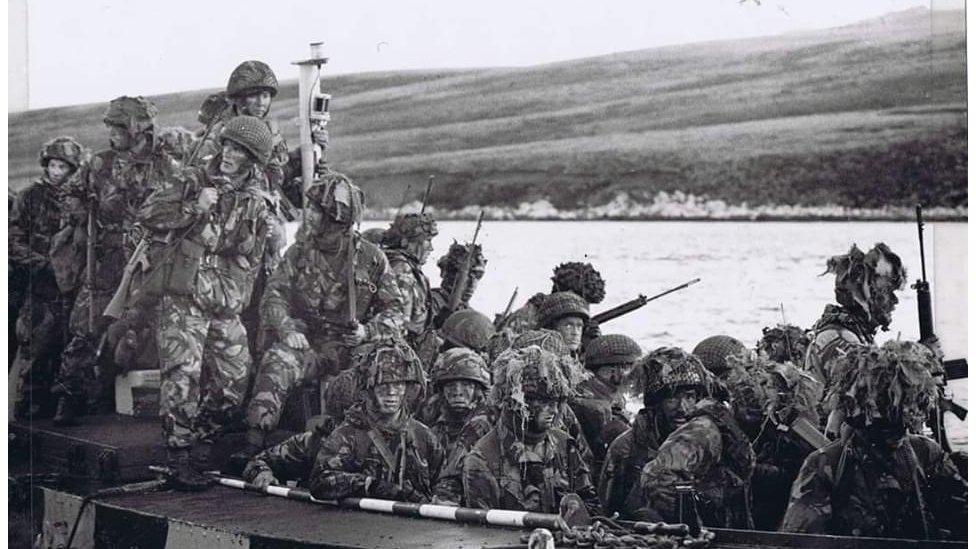
At 22 Thomas Noble, third from the front looking directly at the camera, answered the call to serve in the Falklands
"I'm sitting in the beautiful Falkland Islands on beautiful White Beach with penguins and sealions. I thought 'Why did we lose 23 men here?"
Forty years on from the Falklands war, Thomas Noble shares what it was like to lead a section in one of the most decisive battles of the campaign.
He was just 22 when the order came and he found himself picking his way through a minefield.
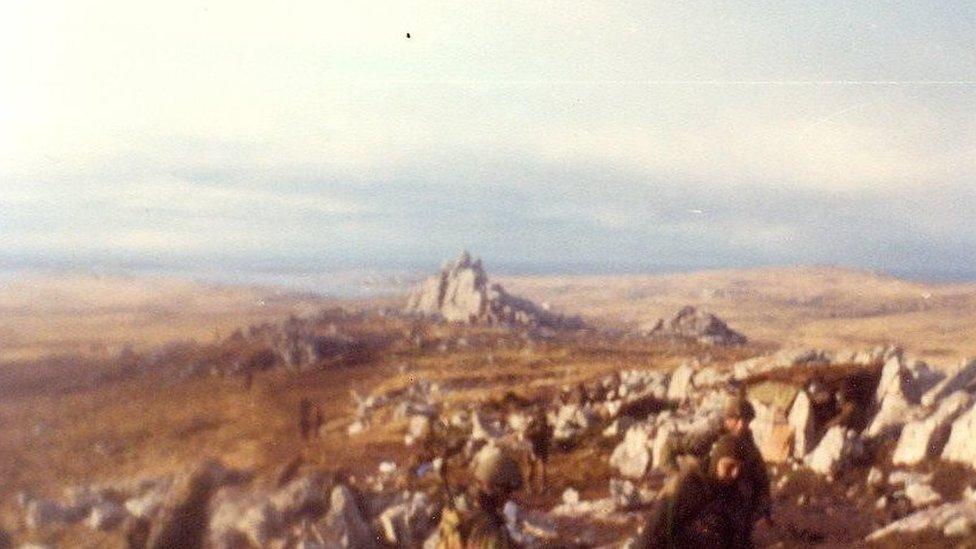
The soldiers had to contend with some extreme conditions and many suffered from Trench Foot
"We were blessed with a cold, crisp ground and a better moonlit night so the soldiers could follow my foot tracks through the minefield, and that's what I explained to them.
"'Follow my steps. If I get hit, then go back and try to go through another route, if you can.'
"We had no covering because we wanted the element of surprise."
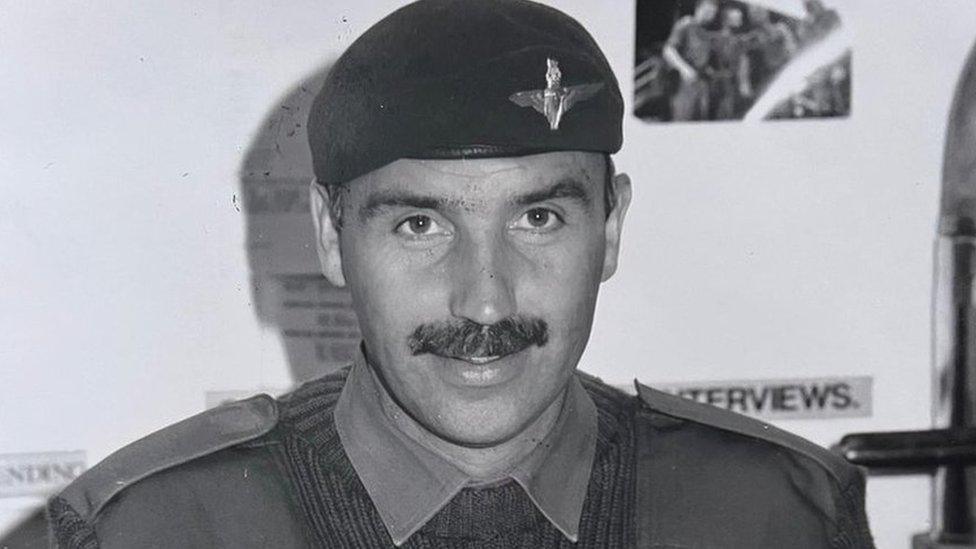
Mr Noble (Tam), from Warminster in Wiltshire, was a corporal in The 3rd Battalion of The Parachute Regiment.
He received a mention in dispatches for his actions at Mount Longdon on the night of June 11, 1982.
The conflict resulted from the long-standing dispute with Argentina over the sovereignty of the Falkland Islands and South Georgia that lie in the Atlantic to the east of Argentina.
The British government dispatched a naval task force to retake the islands by amphibious assault when Argentine forces invaded on 2 April, external.
"There were extreme conditions from the time of landing at Green Beach and all the way to Mount Longdon beyond that. We were wet."
Tam described the enormous sense of responsibility he felt being in charge of a group of men, some as young as 17, engaged in some of the bloodiest fighting against the Argentinian forces.
"You are their mother, their dad, their grandmother, you're everything to them."
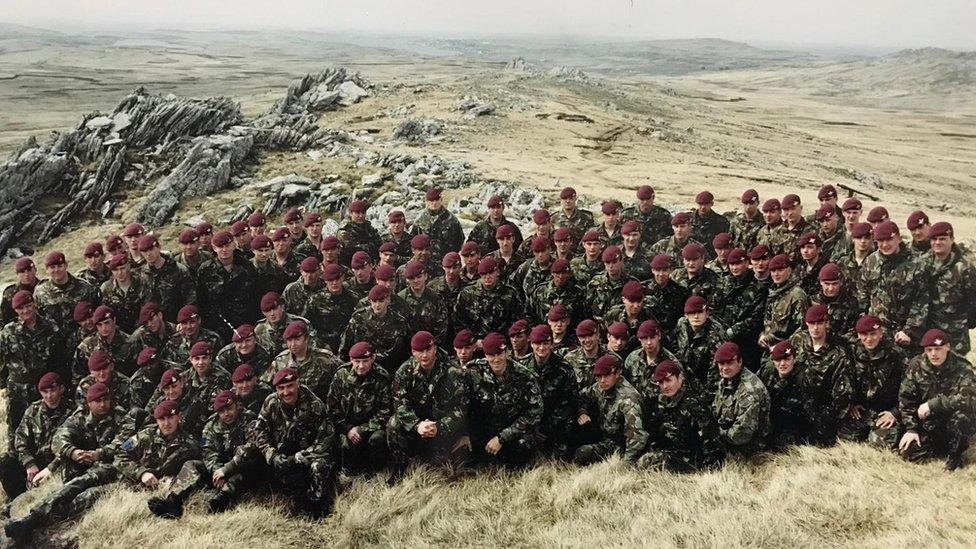
He served as section commander for The 3rd Battalion of the Parachute Regiment
When another corporal stepped on a mine, it was "like somebody putting the lights on in a dark room", he said.
"The element of surprise is gone. The weight of fire was phenomenal.
"I had rounds which ricocheted off the top of the barrel of my weapon. That's how close I was to being hit."
"I was lucky not to lose any of the men in my own company."
The extent of Tam's trauma lay hidden from him for more than 30 years but then he started to experience flashbacks.
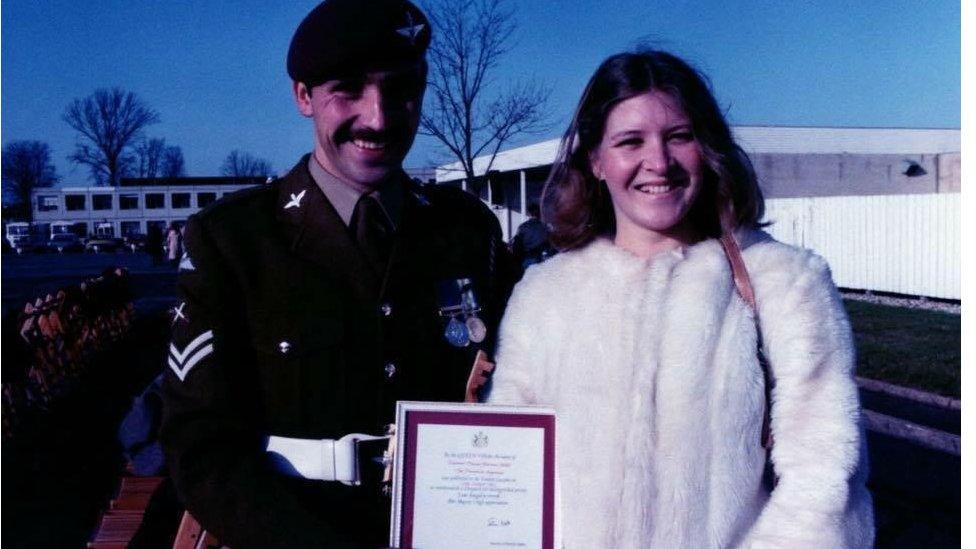
He was mentioned in dispatches for his actions in the battle at Mount Longdon
"I woke up one night and I was strangling my wife quite badly, to the point I thought she was an Argentinian.
"That's been one of my nightmares. It's been there for quite some time," he explained.
He was finally diagnosed with PTSD four years ago when he returned to the Falkland Islands to lead a battlefield tour.
"It's a case of trying not to remind yourself too much of the battle."
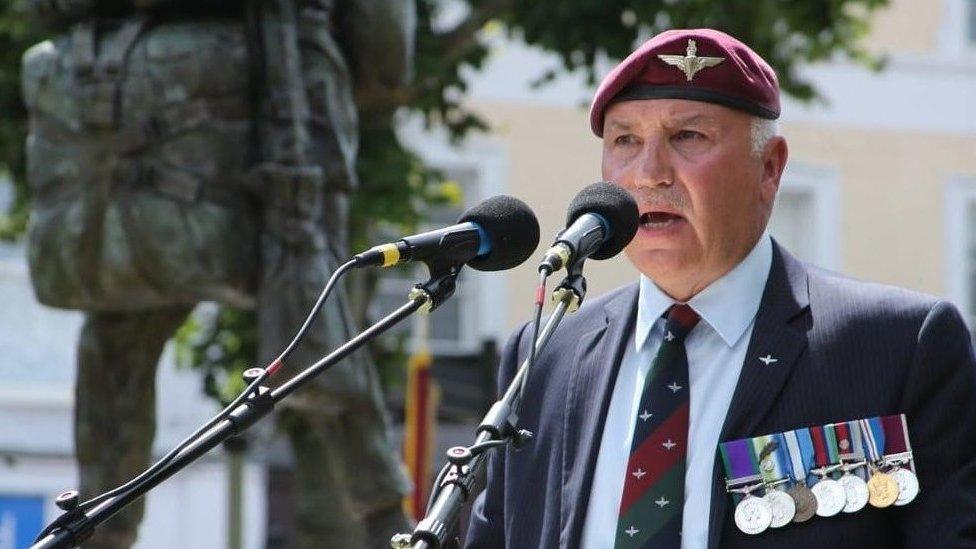
Tam has experienced flashbacks since he served in the Falklands conflict
His memories of that night deeply affected him as he stood once again on the field of battle.
"It opened a Pandora's box for me. I thought 'Why did we lose 23 men here?' That plays around with your head."
Several more colleagues have taken their own lives since then.
Processing the experience Tam said he had been forced to come to terms with his actions.
"It's either your life, or theirs; no ifs, no buts, that is an order."
When Tam saw the white flags flying over Stanley on 14 June, he said he knew the enemy had surrendered.
"They were broken. They had given up completely.
"There were bodies everywhere. The locals were wandering around confused. Some sense of order had to be put back in place."
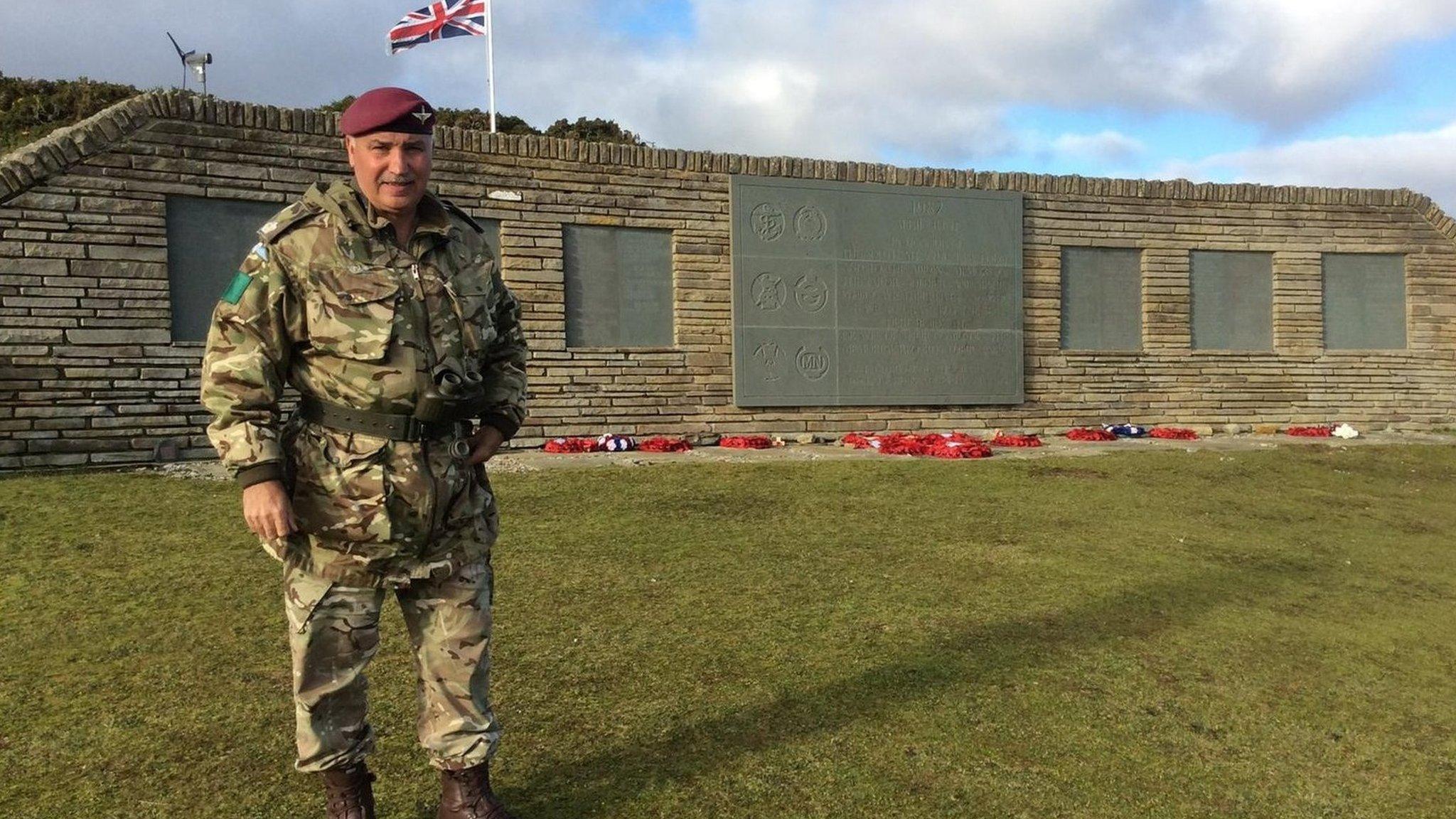
Events are being held to commemorate the 40th anniversary of the conflict
The sense of victory and relief among his men was enormous, he said. They were initially euphoric.
"I still had all of my men. Not one of them was injured. A mine clearance company later could not believe we had all got through that battlefield unharmed. It was a miracle."
It was Tam's birthday on 23 June and they found someone who could play the guitar and had their own mini celebration in the house.
The death toll during the 74-day war stands at 255 British military personnel, 649 Argentinian soldiers and three islanders.
Events are being held, external across the country to remember the conflict 40 years on.
Related topics
- Published20 January 2022
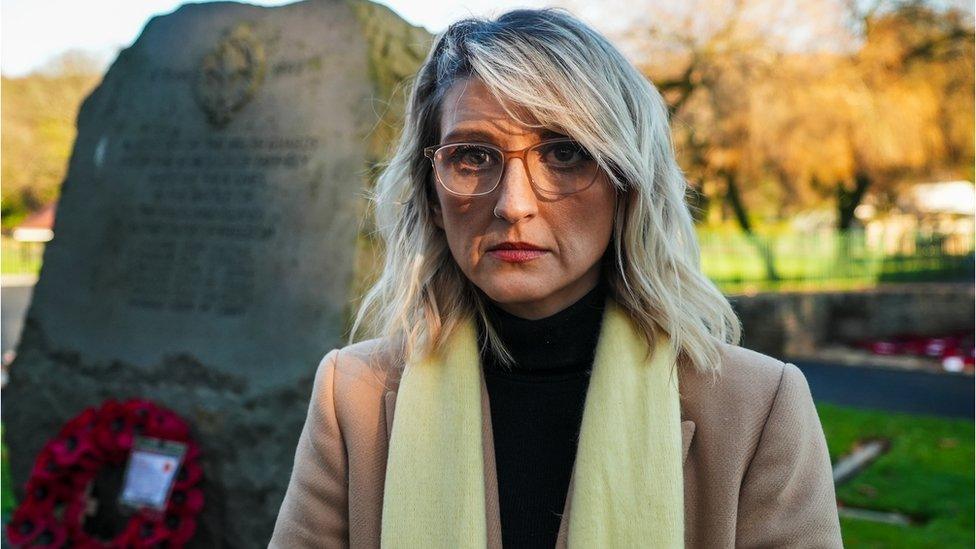
- Published3 January 2022
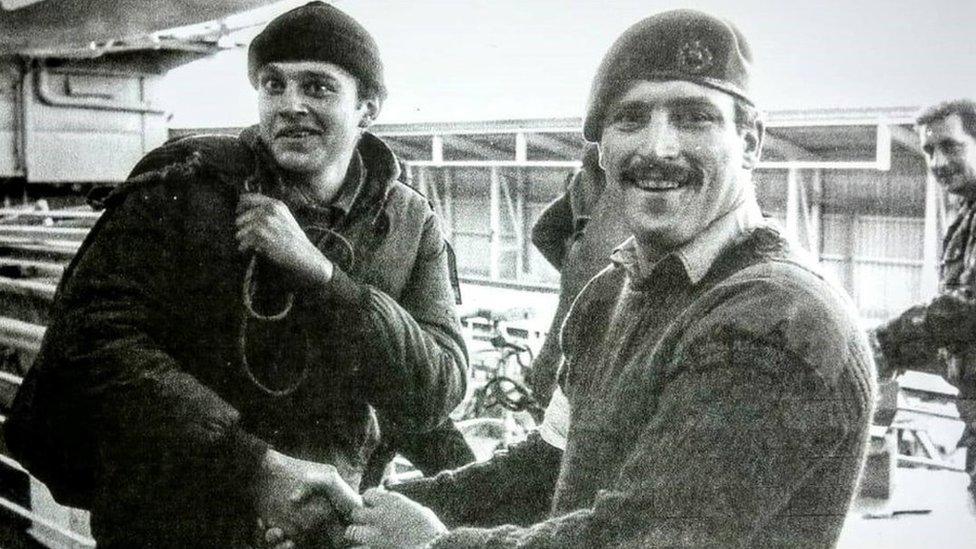
- Published14 November 2020
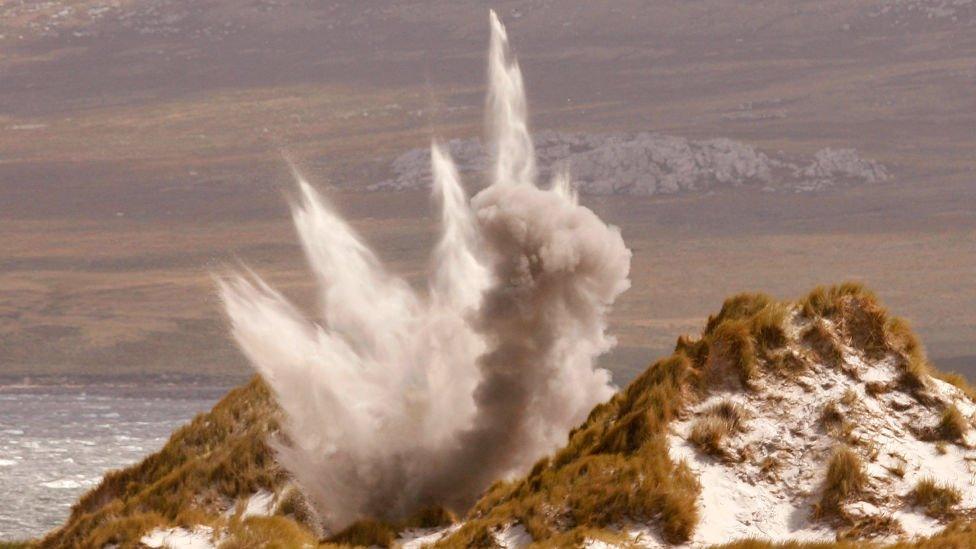
- Published22 November 2018
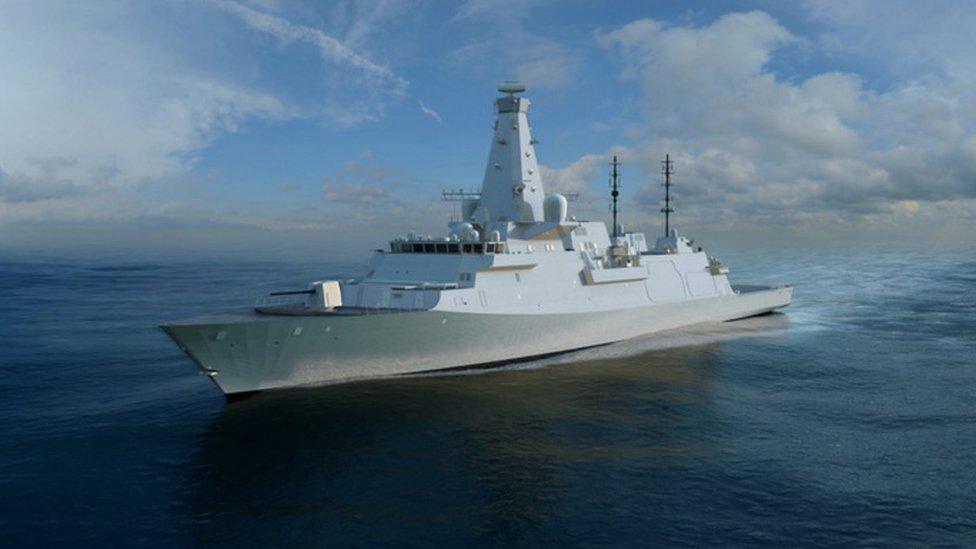
- Published15 January 2018
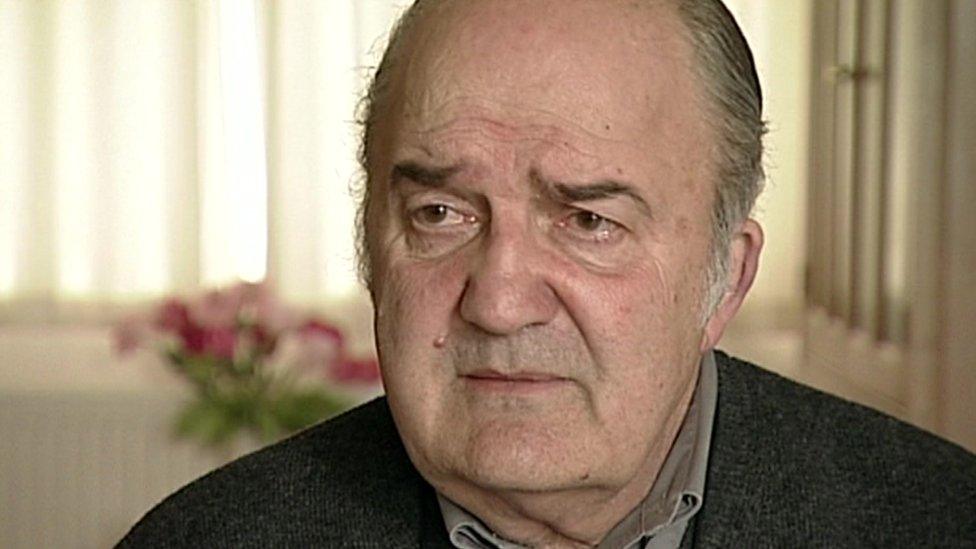
- Published27 October 2017
